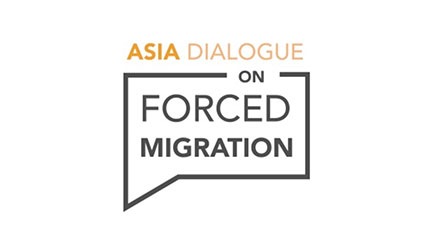So, I’ve been invited to attend the upcoming Australia 2020 Ideas Summit. Here’s the spiel on the section that I’ll be attending:
TITLE: The future of Australian governance: open government
(including the role of the media), the structure of government and the
rights and responsibilities of citizens.
The Australian Government is committed to greater access to freedom of
information, effective parliamentary reform and removing as many
dysfunctional dimensions to the Australian Federation as possible. The
Government is also examining ways in which Australians can increasingly
deliberate in the making of government policy through a range of
mechanisms, including community cabinets, as a part of a commitment to
contemporary democracy.
The Australia 2020 Summit will examine:
* How best to implement an effective an agenda of open government
which best balances the legitimate requirements of the media and the
confidentiality requirements of cabinet government in the Westminster
system
* How best to engaged the community in government decision making
* What forms of Federation reform are appropriate for the future to maximise outcomes for the economy and the community
* How to ensure the future viability of local government operations and infrastructure provision.
The ‘open government’ and citizen engagement questions are the ones
that interest me most. Some of the ideas I’d like to explore on these
issues are:
- FOI reform based on the ‘default disclosure’ principle
- Addressing the current overuse of cabinet and commercial-in-confidence provisions to dodge FOI applications
- Options for making the vast bulk of publicly collected and owned
data available for free online. Taxpayers shouldn’t have to pay for the
same information twice! (See http://www.osdm.gov.au/Events/182.aspx for the current state of government data publishing in Oz, http://www.ethanzuckerman.com/blog/2007/12/09/towards-the-principles-of-open-government-data/ for a draft set of principles for open access government, and http://www.guardian.co.uk/technology/2008/mar/20/freeourdata.politics
for discussion of a UK study on the economic benefits of dropping ‘cost
recovery’ charging on public information – thanks to Dan MacKinlay for
the links) - Should reduced limits on political donations be accompanied by a
cap on campaign spending, and if so should that cap extend to third
parties? (I think there’s a fairly easy case to be made that associated
entities should be included in any spending cap, but what about other
organisations that have an interest in the outcome of an election –
like Get Up or the Australian Chamber of Commerce and Industry?) - How can we make more use of tools like citizens juries etc to widen
the circle of inclusion in democratic decision making and
priority-setting? (I’m particularly pleased that Janette Hartz-Karp and
Lyn Carson have been included in the summit, as they both have a lot of
experience on this issue. There’s an article by Lyn Carson & others
in the latest InSight on how citizen juries could be used as a tool for
opening up the ideas raised at the Summit to wider debate: http://cpd.org.au/insight/march08)
But there’s so many more issues that I’d love to raise that don’t come
under the narrow remit outlined above.
Rather than just talking
about media access to government information, I’m hoping that there
will be space over the course of the two days to look at practical
strategies for increasing the health and diversity of Australia’s media
ecology – building on some of the ideas that Emma Dawson & I
discussed in http://cpd.org.au/paper/introduction-ideas-australian-media-policy – particularly this point:
"No one form of media ownership or production can meet all
the needs of citizens in a democracy. Public, commercial,
non-profit/‘independent’ and community media each have their own
strengths and vulnerabilities, and the health of each should be
fostered by a comprehensive media policy"
I also don’t think you can talk about governance and the health of
democracy without talking about the third sector, and I have a bunch of
ideas about how to protect NGOs from a repeat of the crackdown on
dissent experienced (most obviously, but not exclusively) under the
last government.
Many more thoughts to come, but I just wanted to jot down a few initial
points & see what y’all think. Over the last year I’ve learned that CPD readers and contributors are an extremely well-informed and creative bunch of thinkers, so if you have any crazy ideas that
you’d like me to throw in my backpack and hand over to a bunch of
overworked public servants in Canberra, now’s your chance! I’m not sure
how much opportunity there will be for making sure that ideas raised at
the Summit itself are attributed, but I’ll be writing the whole experience
up for CPD at some point, so I can do shout-outs to the sources of any
ideas then.



